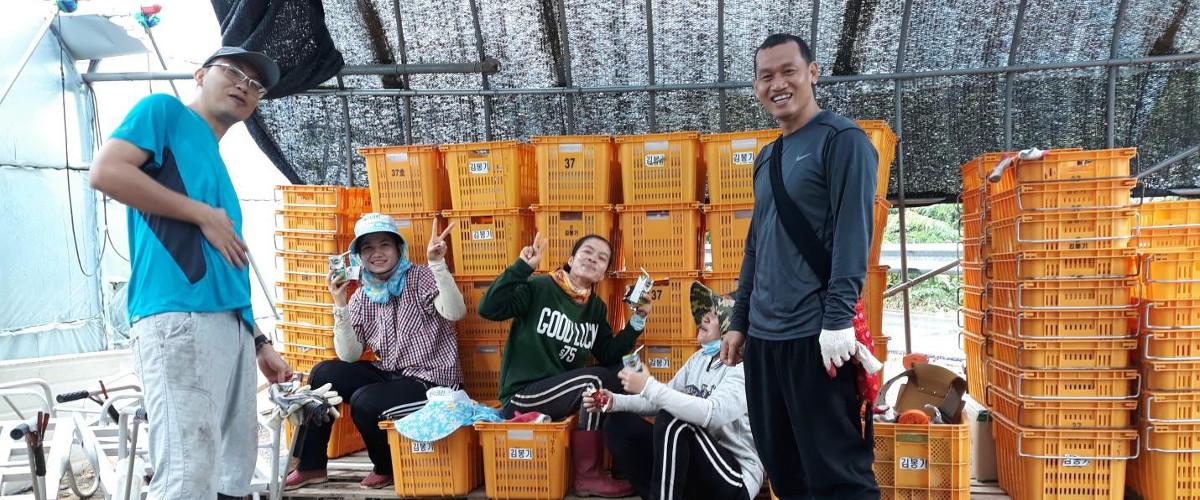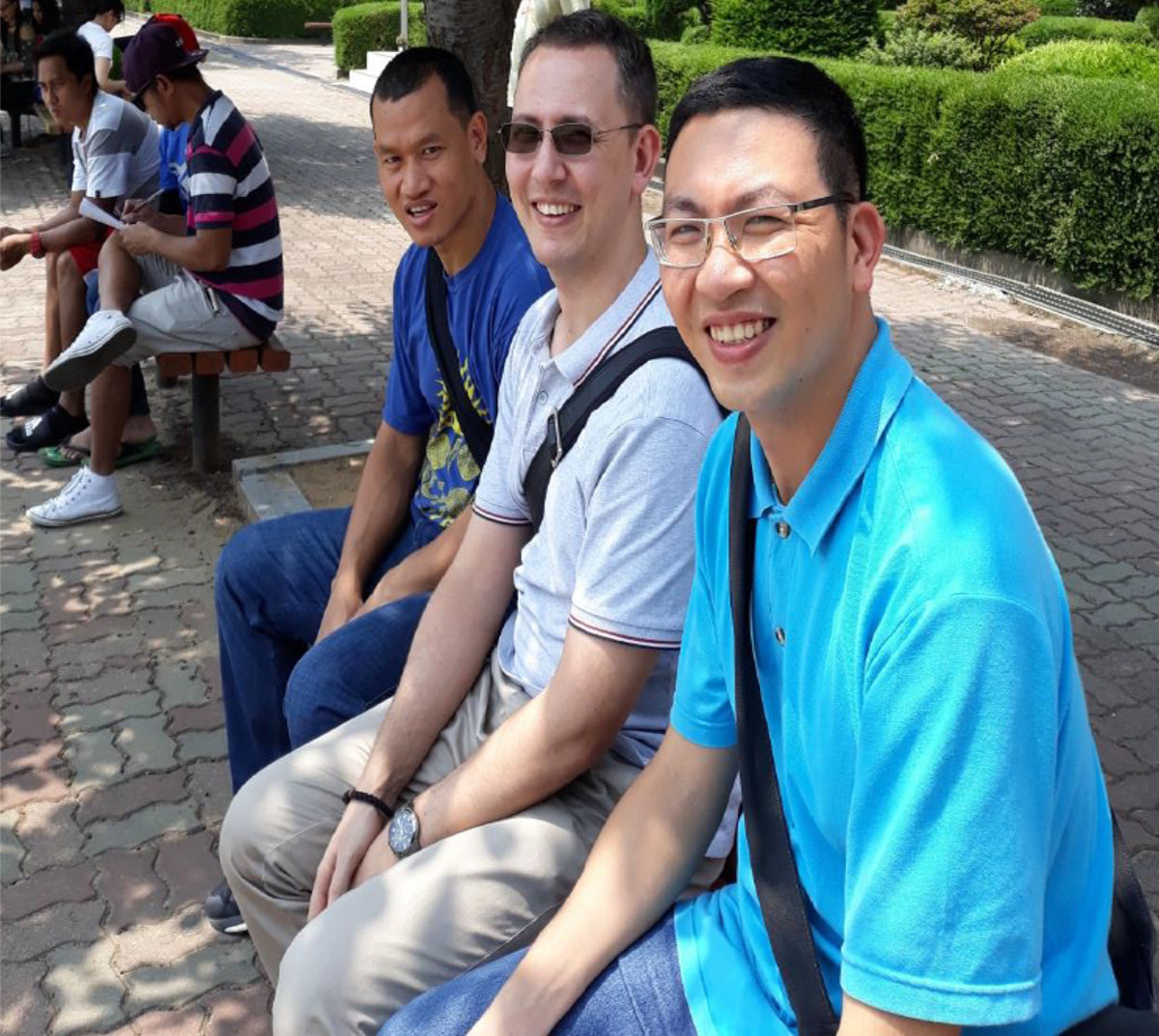
Myanmar Scholastic Joseph Zaw Goan realised this during the Immersion Programme on Migration hosted by the Korean Jesuit Province from June 20 to July 5. Together with two other participants, one from Vietnam, the other from South Africa, he learnt about migration issues in South Korea and the situation faced by migrant workers in the country’s farms and factories.
During the classes, Fr Denis Kim SJ explained how Korea, once a country of emigration, has become a migrant-receiving country. Some of the factors for this are the low fertility rate and the aging population, labour shortage particularly in the manual labour industry and globalisation.
The participants visited Yiutsari Jesuit Migrant Center where they met migrant workers being accommodated while they wait for their next job, and those who take the Korean language classes every Sunday. “It was impressive to see how Yiutsari accompanies, serves and advocates for migrant workers regardless of religion, nationality and cultures,” said Sch Zaw Goan.
He also gained insights from his conversations with the migrant workers. Although many migrant workers go to Korea to earn money, he was reminded by these conversations that money is not the only thing they seek.
“I met Rex from the Philippines, who despite being offered higher pay but with longer working hours, wants a job with regular working hours and salary but with good working relationship with others. From his experience, when there is no good relationship with the co-workers and the boss, the work can become more stressful.”
Fago, a Nepalese factory worker shared Rex’s sentiments. He told Sch Zaw Goan how having an unfriendly relationship with the boss can make work in the factory much more difficult. “Listening to them, I learnt that a good relationship with co-workers and employers is something that many migrant workers wish to have,” said Sch Zaw Goan.
The participants also worked in a cucumber farm with Cambodian and Thai migrant workers who work 12 hours a day excluding breaks . “We were surprised to witness a friendly relationship between the farm owners and the migrant workers,” Sch Zaw Goan said. “What was even more inspiring was that the owners worked just like the migrant workers.” However, they also learnt that not every migrant farm worker enjoys a good relationship with his employer.
A full day was spent in a factory helping pack piggy banks. “Unlike in the farm, the work atmosphere in the factory was more tedious and challenging as there was a lot more pressure from the boss,” said Sch Zaw Goan.







